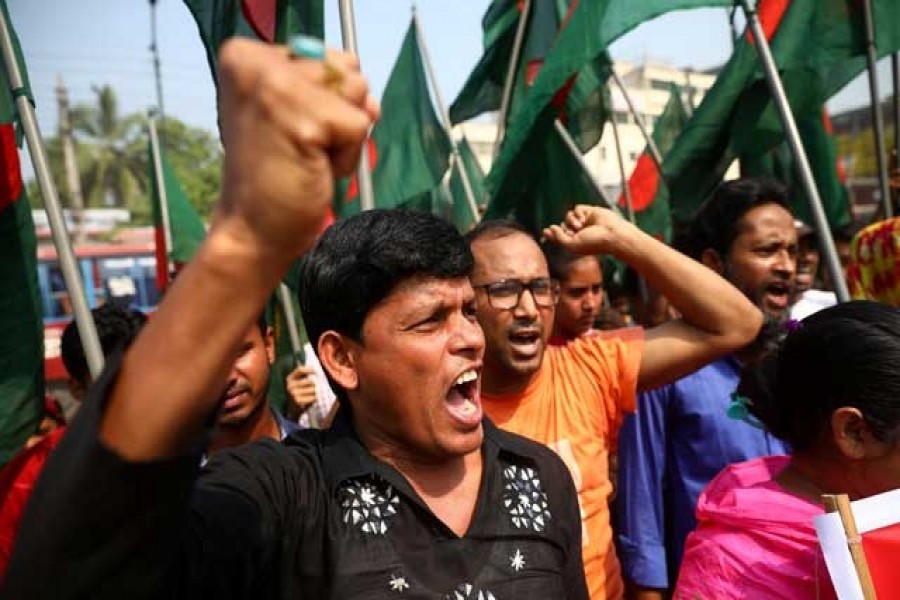12/22/2025

Stop worker abuse in garment industry, report urges BD
Siyam Hoque | Published: 2020-03-10 18:43:16

Workers in Bangladesh's garment industry face increased threats, intimidation and even physical and sexual abuse, according to a report for an influential US Senate committee that urged authorities to do more to protect labor rights.
The study for the United States Senate Committee on Foreign Relations found that while factory safety had improved since the 2013 Rana Plaza disaster, Bangladesh was backsliding on workers' rights.
"Today, many of Bangladesh's ready-made garment factory buildings are structurally safer, but the workers inside are not," said the report, released by the Democrat Senator Bob Menendez.
"Labour rights have declined precipitously in recent years as union organizers contend with pressure on freedoms to associate, organize, and demonstrate. Worse, workers are being abused - verbally, physically, and sexually."
A senior official with the labor ministry denied there had been any backsliding on labor rights, but said there was room for improvement.
Bangladesh, which ranks behind only China as a supplier of clothes to Western countries, relies on the garment industry for more than 80 percent of its exports, and about 4.0 million jobs.
Many top Western fashion brands manufacture clothing in Bangladesh and the industry has been under global scrutiny since the Rana Plaza factory complex collapsed seven years ago, killing 1,134 people.
"We want to work with the international community," said KM Ali Azam, secretary at the Ministry of Labour and Employment, promising to have a "detailed discussion" with factory owners on the report's findings.
"We will have a discussion regarding this report and work on including the suggestions that are possible to include," he told the Thomson Reuters Foundation on Monday.
US researchers traveled to Dhaka in July to speak to Bangladeshi garment workers, union activists, government officials and civil society representatives for the study, published last week.
They found union leaders faced threats and intimidation, hampering their ability to investigate claims of abuse, most of which were from women workers who make up the majority of the workforce in Bangladesh's garment industry.
Azim said there had been no recent reports of a major abuse of women workers.
The study comes amid concern over the ending on May 31 of a mechanism led by European fashion brands that have been credited with improving working conditions in more than 1,000 factories in Bangladesh.
It will be replaced by a private monitoring entity, RMG Sustainability Council, which will be made up of factory owners, union leaders, and brand owners.
Editor & Publisher : Md. Motiur Rahman
Pritam-Zaman Tower, Level 03, Suite No: 401/A, 37/2 Bir Protik Gazi Dastagir Road, Purana Palton, Dhaka-1000
Cell : (+88) 01706 666 716, (+88) 01711 145 898, Phone: +88 02-41051180-81